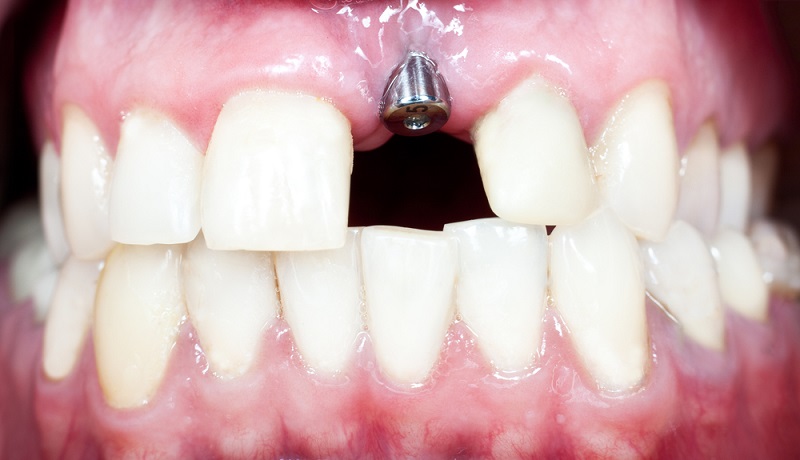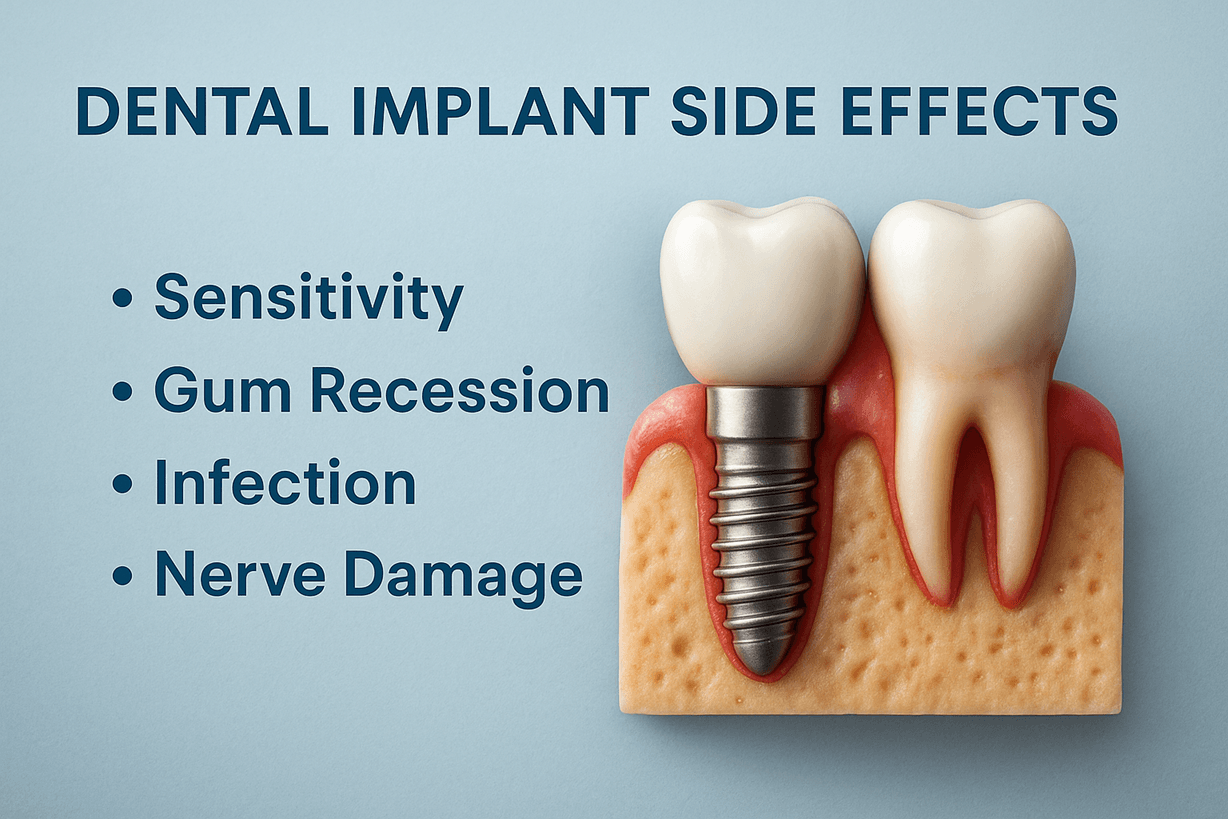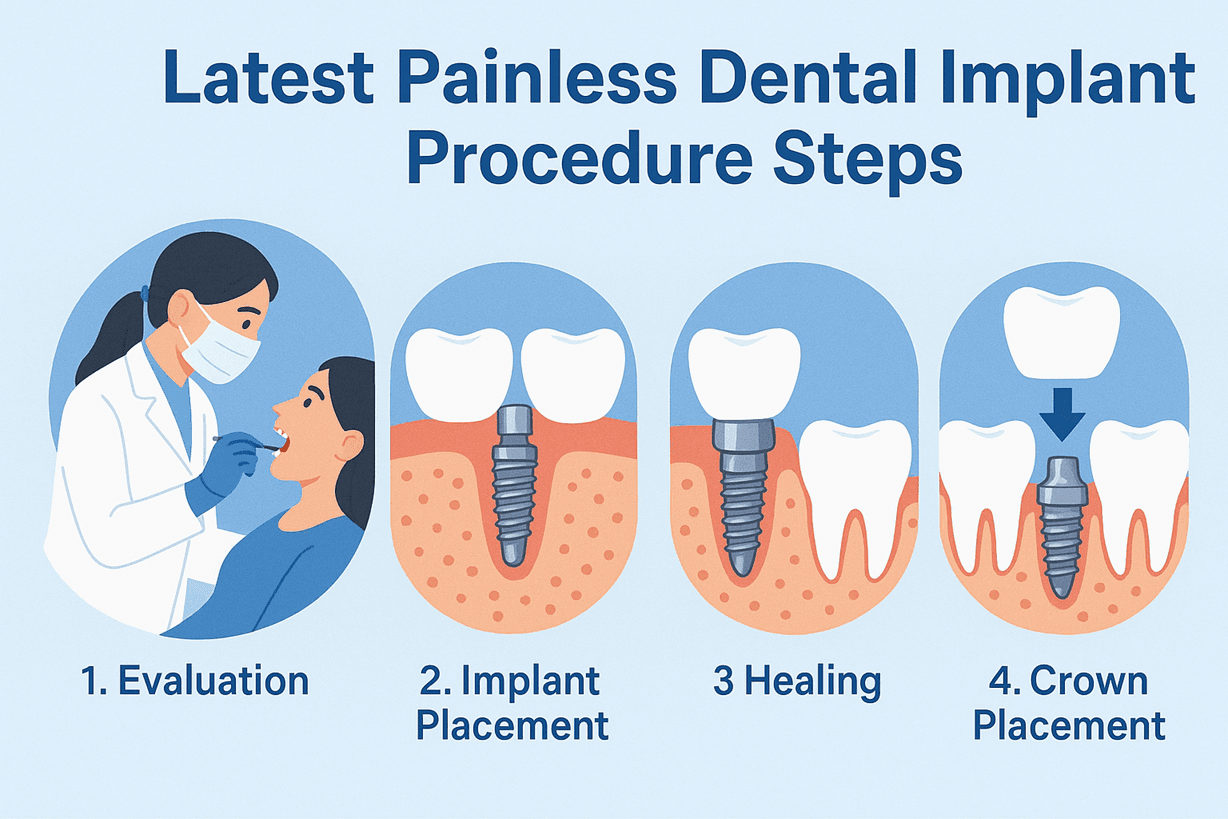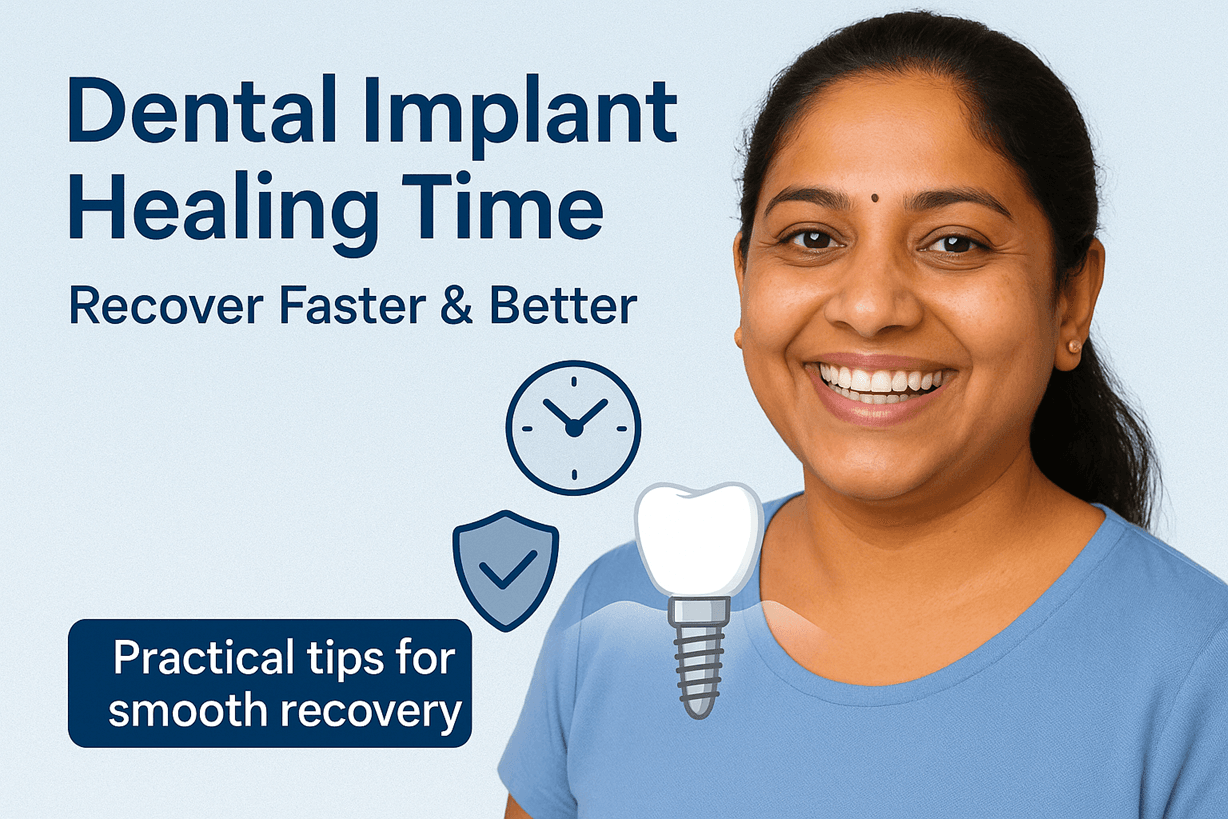Contents

Are you considering dental implants to replace missing or damaged teeth? While they are a popular and effective option for restoring your smile, it's important to know about the potential side effects and risks involved.
In this blog post, we'll explain everything you need to know about dental implant complications, so you can make an informed decision before undergoing the procedure.
From infection and implant failure to nerve damage, we've got you covered with all the essential information on this topic!
So let's dive in and explore what could go wrong with dental implants - and how you can avoid these issues.
we will explore some of the most common side effects and risks associated with dental implants.
What Are The Side Effects Of Dental Implants?
The side effects of dental implants are typically minor and can be easily treated.
Some of the most common side effects include:
Soreness or tenderness around the implant site
Bleeding or bruising around the implant site
Swelling around the implant site
Infection at the implant site
Nerve damage
Bone loss
Implant failure
Most of these side effects will resolve on their own within a few days. If you experience any serious side effects, be sure to consult with your doctor.
What are the Risks of Dental Implants?
The risks associated with dental implants are typically low and can be effectively managed by working with a skilled and experienced implant dentist.
However, as with any surgical procedure, certain risks should be considered before undergoing treatment.
The most common complication associated with dental implants is an infection at the implant site. This can usually be treated successfully with antibiotics, but in rare cases may require implant removal.
Other risks include nerve damage, which can cause numbness or tingling in the lips, gums, or chin; sinus problems; and damage to surrounding teeth. In very rare cases, an allergic reaction to the titanium implant material may occur.
Before undergoing dental implant surgery, it is important to discuss all potential risks and complications with your dentist to ensure that you are making an informed treatment decision.
How can I avoid the side effects and risks of dental implants?
While dental implants have relatively minor side effects, there is always a potential for complications.
To minimize risks, consider the following steps:
- Choose an experienced and qualified implant dentist
- Follow all post-operative instructions carefully
- Keep the implant site clean by brushing and flossing regularly
- Avoid eating hard or chewy foods for a few weeks after surgery
- Avoid smoking or using tobacco products during the healing period
- Discuss any concerns with your implant dentist
Common side effects like pain, swelling, and bruising around the implant site are usually temporary.
More serious complications, such as infection or nerve damage, are rare but can occur. Proper care and planning can make dental implants a safe and effective solution for missing teeth.
Reasons Not To Get Dental Implants
There are a few reasons why dental implants may not be the best option for you.
1. If you are not a good candidate for dental implants, your dentist may be able to recommend a different type of dental restoration.
2. If you have significant dental problems, dental implants may not be the best option for you.
Dental implants are a long-term solution, and if you are not comfortable with that fact, you may be better off considering other options.
They are also not the best option for people with significant dental issues, such as jawbone problems or tooth loss.
3. If you have existing medical conditions or take certain medications, implants might not be the best option for you either.
Dental implants are metal devices, and if you are already prone to metal poisoning or have other medical conditions that cause metallic objects to interact with your body negatively, implants may not be the best option for you.
4. If you’re not willing to commit to the necessary aftercare and maintenance of dental implants, they may not be a good choice for you.
Dental implants require diligent care and regular check-ups to maintain their longevity and effectiveness.
If you are unsure whether dental implants are the right solution for you, talk to your dentist.
They can help you weigh the pros and cons of dental implants and recommend the best course of treatment for you.
5. There is a chance that implants could fail and need to be replaced, which can be a costly process. All of these factors should be considered when making a decision about dental implants.
If you are not a good candidate for dental implants, your dentist may be able to recommend a different type of dental restoration or recommend a different option altogether.
Truth About Dental Implants
There are many myths and misconceptions about dental implants. Here, we debunk some of the most common ones:
- Safety: Dental implants are not risky or dangerous. They are one of the safest and most effective ways to replace missing teeth.
- Material: Implants are made of titanium, a biocompatible material that fuses with your jawbone, providing a strong and stable foundation for replacement teeth.
- Pain: Contrary to popular belief, dental implants are not painful. With advances in dental technology, implants are placed using minimally invasive techniques and local anaesthesia. Most patients report little to no discomfort during or after the procedure.
- Cost: While the initial cost of dental implants may be higher than other tooth replacement options, they save you money in the long run. Implants are designed to last a lifetime with proper care, unlike dentures and bridges which need replacement every few years.
If myths or misconceptions have kept you from considering dental implants, contact our office today to learn more about this life-changing treatment.
Conclusion
Overall, dental implant surgery is a safe and effective way to replace missing teeth. Although there are some potential side effects and risks associated with the procedure, they can be minimized by following your dentist's instructions after the procedure.
It is also important to ensure that you receive care from an experienced and qualified oral health professional to avoid any complications during or after the implant placement process.
If you have any questions or concerns about getting dental implants, talk to your dentist before going ahead with the treatment.



